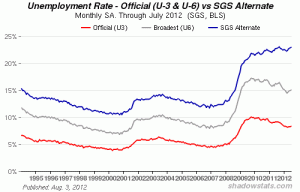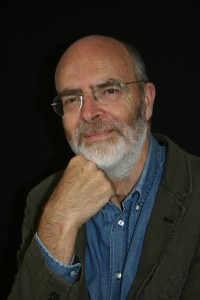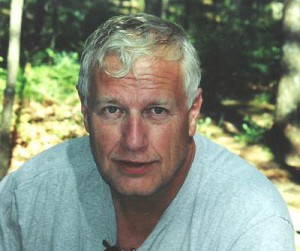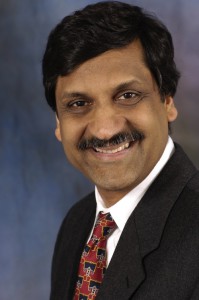
As of July 2012

Transforming and Interweaving the Ways of Being Stoned
Imagination, Promise, Rocks, Memorials, Petrification
Laetus in praesens, 4 Sep 2012
EXTRACT:
This experiment explores analogies between the mnemonic pentagrams fundamental to the Hygieia understanding of health of Pythagoreans and to its current understanding through the Wu Xing system of Chinese culture. The focus here is however on their relevance to the dynamics of “cognitive health”, especially with respect to a global knowledge-based society — whose conflicts are variously driven by societies attaching central significance to the pentagonal star. This follows an earlier exploration of symbolic framings (Middle East Peace Potential through Dynamics in Spherical Geometry: engendering connectivity from incommensurable 5-fold and 6-fold conceptual frameworks, 2012).
Introduction
Fivefold clustering of ways of being stoned
Towards a cognitive variant of the viable systems model
Comprehending cognitive metabolism
Cycles of enstoning forming mnemonic pentagrams: Hygiea and Wu Xing
Potentially health developmental integrity from 5-fold symmetry
Cognitive health as a sustainable cycle of self-reflexivity
Mnemonic possibilities towards cognitive health
Memetic osmosis around a 5-fold pattern of enstoning
Health and sustainability misleadingly framed as target acquisition
Frames of reference and conceptual revolution
Magnum Opus: cyclic transformation of Qi / Chi?
Enstoning as degrees of material formalization
References

Mind Control and the “Left – Right” Paradigm
Veterans Today, 4 Sep 2012
EXTRACT:
Anyone with a realistic view would, as I have suggested before, vote in a powerful and charismatic leader, have the Supreme Court disbanded, disband congress, have a realistic constitution written, disband the Federal Reserve, fire 85% of our senior military, 50% of our Officer and NCO corps and reduce military spending by 80% immediately.
We would withdraw from the UN, from NATO, close bases overseas, stop all foreign aid, end all imports from slave labor nations and tax the living hell out of anything brought into the US.
All money that couldn’t be proven to have been made legally, industries that do not create jobs, actual work, would be declared “null and void.”
Most in prison would be released, some treated, sex criminals isolated, others given jobs and educations and forced to live like the rest of us, paying taxes and utility bills.
All public utilities would be seized and turned over to the government, oil companies nationalized, all defense industries nationalized, all drug industries put under continual supervision and forced to spend all profits on government bonds.
Continue reading “Gordon Duff: Mind Control, Lef-Right Myth, Re-Connecting to Reality + Meta-RECAP”
![]() Q&A: Anant Agarwal, edX’s president and first professor
Q&A: Anant Agarwal, edX’s president and first professor

In May, Harvard University and the Massachusetts Institute of Technology announced their joint plan to “explore the frontiers of digital education” by offering free online courses to learners around the world. As a result, their new online learning platform edX entered the burgeoning world of MOOCs — that is, massive open online courses— backed by a hefty $60 million pledge from the prestigious institutions.
With the fall slate of classes starting soon and the University of California—Berkeley now on board, we spoke with edX’s president and first professor, Anant Agarwal, about MOOCs in general and edX in particular.
What are your main goals for edX as its president?
We really want to reinvent education. We want to offer education on a planet scale to people all around the world. Anybody who has an interest and the capability to master the material should be able to access the content for free. We also really want to revolutionize campus education. We’ve been finding that online technologies can be applied on campus to create new blended models of learning.
What do those blended models look like?
In a blended model, you do what is called flipping the classroom. Flipping involves having students do video [lecture] sequences and some concept exercises at home before they come to class. Then, you can ask the students to come into the class for interactive sessions where they can sit down and have discussions, ask questions, do interactive laboratories, solve problems. It kind of reverses what is done today and it can be very effective.
You taught the first edX class, Circuits and Electronics, from March to June this year. What did you learn about online education and MOOCs?
The whole area of MOOCs and planet-scale learning is in its infancy. Very little is known about it, so a lot of what we did was guesswork. When we began the course, we were really concerned about the large number of students enrolled. We had 154,000 students sign up and our staff was about six or seven people, which is the kind of staff that we have for a 100-person on-campus class. We didn’t know how we were going to deal with all the questions and so on that students usually have, but through our online discussion boards, we saw the students answering each other’s questions. There were no repeat questions because once someone asked a question everybody could see the response. In that way, we were able to serve 154,000 students with a very small staff. I think that was clearly our biggest learning experience and the biggest surprise we had.
Continue reading “SmartPlanet: Reinventing Education via edX and MOOC [Massive Open Online Courses]”

Knights know that the arts–especially music–are essential to developing the creative and innovative impulses of entrepreneurs. Put more directly: no arts in education – fewer entrepreneurs.
Lesson Plans and Resources for Arts Integration
Dance in science, pop art in Spanish, or photography in math — there’s no end to the ways arts can be integrated into other curricula. Educators from Bates Middle School, in Annapolis, Maryland, share arts-integrated lessons and resources that you can use in your school.
Click on any link below to view or download that file.

So, I've been working with the incomparable Sam Arbesman to write up some thoughts on the concept of “fractional scholarship.” Basically, the idea is that there are a lot of people out there who have the expertise and the interest to contribute to scholarly research, but for whom, for whatever reason, the seventy-hour-a-week academic lifestyle just doesn't work. We need to develop mechanisms that will allow people to participate in research at ten, twenty, or thirty hours a week, and to get paid for doing it.
Obviously, someone working only ten hours a week would get paid a lot less than a university professor, which is part of what makes this such a powerful model. Keep in mind that a typical university professor probably does not spend much more that ten hours a week actually doing research anyway, what with all the personnel-management and bureaucratic tasks that take up so much of their time.
Basically, all the people out there (and there are tens of thousands of them) who got a PhD, but then dropped out of academia (e.g., to have kids) represent a vast underutilized intellectual resource that is trading well below its actual value. Tapping in to that resource is one of the things that we hope to do with the Ronin Institute.
Check out the full white paper at the Kauffman Foundation website, here. [Also Below]

We need to reformulate political power now!
by Tom Atlee
We need to reformulate political power. We need to do it now and we need to focus on it as central to our work on every issue, every vision, every outrage and hope.
Our goal in reformulating political power must be to move from governance that primarily serves the short term profit of the few to governance that primarily serves quality of life for all – including future generations.
In order to achieve this, we need to reformulate political power in at least five ways. All five reformulations need to synergize and support each other if we are to meet our goal. If we fail to reformulate any one of these forms of power, we risk undermining the others and falling far short of our goal.
Here is a quick outline – a draft summary, really – of a possible integrated vision of power reformulation:
Continue reading “Tom Atlee: Non-Violent Reformulation of Political Power”